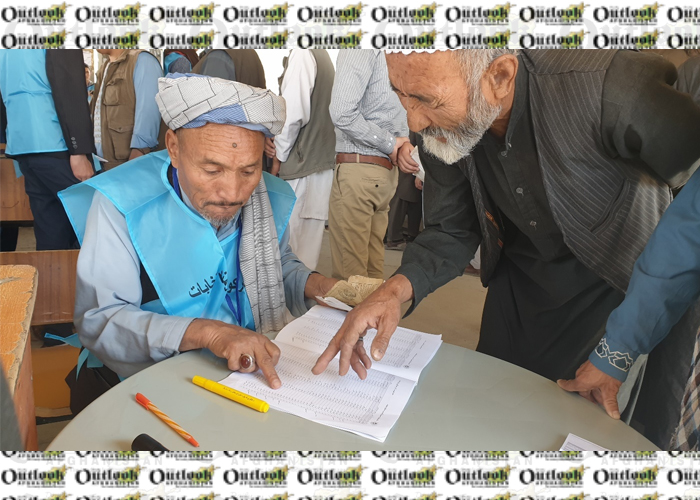Amidst the ongoing conflict, resumption of peace talks is making the headlines. The Taliban delegation, after making a trip to Iran, signaled positively for resumption of talks. But Afghan officials have serious reservations about the Taliban’s intention of starting talks since their fighters are widely engaged in escalated insurgency.
Earlier, spokesperson to Afghan National Directorate Security Rahmatullah Andar said on a tweet that the republic negotiating team was still in Doha, Qatar’s capital, but the Taliban would not negotiate. He added that Afghans and the entire globe expect the dispute to be settled through negotiations.
The Afghan administration expects regional and global stakeholders to revive the deadlocked peace process and nudge the Taliban to the table. Re-evaluating their priorities and strategies, Tehran and Moscow are seeking to maintain ties with the Taliban leadership and, apparently, breaking the stalemate in the intra-Afghan dialogue. Kabul has constantly called on neighboring states and regional actors to engage constructively in the peace process and press the Taliban group to reduce violence and return to the table. Resumption of talks is still a gleam of hope for the people of Afghanistan although many lost their hope in the process. If regional stakeholders, including Iran, Russia, China and Pakistan, use their leverage on the Taliban and put all their weight behind the peace process, the deadlock is likely to be broken.
The Taliban, however, practice against their statements. The Taliban delegation in Iran said that neither of the side could win through military deal, but their fighters are engaged in mounting insurgency and the Taliban leadership is unlikely to reduce violence or declare ceasefire, which is conducive to resumption of talks and brokering of peace agreement.
The US-Taliban peace agreement signed on February 29, 2020 was out of haste which simply legitimized the insurgent movement as a stakeholder in the future of the country. But while the US-Taliban deal has been held, the intra-Afghan dialogue has remained stalled for various reasons, notably in the wake of the Taliban’s intensified attacks and lack of flexibility.
It is self-explanatory that the Taliban are concerned about legitimacy and international recognition. If the Taliban seek to impose a regime, on the basis of their own ideological framework, on the people of Afghanistan, it will neither be legitimate nor recognized globally. Neither of the regional states, including Pakistan, will support the formation of “Islamic Emirate”. With this in mind, the Taliban have to seek reaching a peace agreement with the Afghan administration and integrate into the system.
A US official is cited as saying, “President Biden’s decision to withdraw US forces leaves our Afghan partners alone to confront threats that his own top advisors acknowledge are grave and growing worse.” He added, “In the Taliban’s wake, al-Qaeda is already preparing for an ambitious resurgence of its own, which the President’s own Defense Secretary warns could lead to direct threats to the US homeland in as little as two years. Without a reversal of US policy, I suspect this threat will come much more quickly.” “I hope,” he said, “the Biden administration will delay the withdrawal, address these concerns, and reconsider its misguided retreat.”
But Biden assured the Afghan President Ashraf Ghani and his accompanying delegation that the US would continue its support to the Kabul administration. He reiterated his continued assistance to the Afghan defense and security forces, and continue to provide economic, humanitarian and diplomatic support to the country.
Nonetheless, political pundits believe that the trip of President Ghani and his accompanying delegation to Washington was without a remarkable achievement since violence and bloodshed continue unabated. Worst, Biden said that he would complete the troop pullout before September despite the Taliban’s intensified attacks and military takeover of districts. In short, Biden’s act is highly contradictory. On the one hand, he reiterates his support to the Afghan administration, and on the other hand, he announces troop withdrawal before the schedule.
In short, military action will simply increase the level of casualties and trigger public hatred against the Taliban. If the Taliban are genuine in their words for seeking peace and stability, they have to stop spilling the blood of Afghan soldiers and civilians and resume talks. Furthermore, it should be noted that legitimacy will be achieved through public will and people’s participation in political decision-making. If they intend to re-start talks with the Kabul administration, they have to prove their goodwill through reducing violence. Dialogue and non-violent mechanism will be the only way left for resolving the tension; whereas military deal will deteriorate the security situation and challenge the negotiations.
Home » Opinion » Legitimacy Achieved via Public Participation, not Military Action
Legitimacy Achieved via Public Participation, not Military Action
| Hujjatullah Zia

